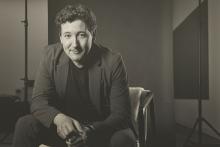David G. Wilson: Breaking the third-generation curse
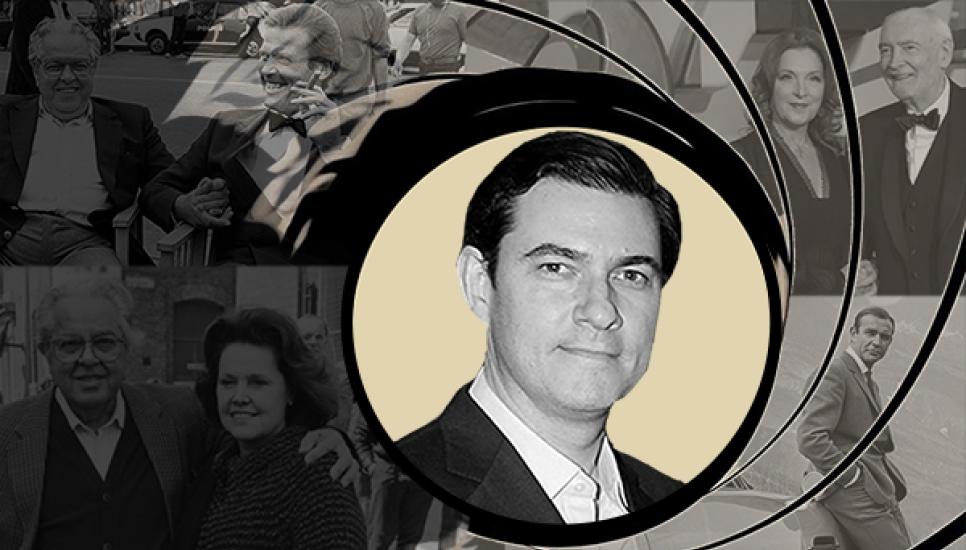
As the 'shirtsleeves-to-shirtsleeves curse’ would have it, 70% of ultra-high net worth families lose their fortune by the second generation, while an astonishing 90% squander it by the third generation. That’s a lot of hard-earned inherited wealth misplaced due to poor preparedness and lack of vision.
For producer, writer, programmer and angel investor David G. Wilson, the key to wealth flourishing beyond gen three is innovation: “The first generation is highly entrepreneurial and takes big risks. The second generation is more custodial. It smooths out the volatility and expands the empire,” he says. “Our family office is now 60 years old. By the time you get to the third generation, the world starts to look very different. There are different players and shifting landscapes, business models don’t work the same. The struggle is reinvention. For the third gen, it’s make or break. You must return to an entrepreneurial mindset.”
In-depth research into the family office landscape would seem to back up David’s assertions. According to Campden Wealth’s research findings, ill preparedness of next gens has been cited as a major concern for half the family offices in North America [1].Only seven per cent feel the next generation is currently very prepared for succession [2]. Conversely, 71 per cent of next gens believe their family and generational peers are prepared for them to take over the business [3].
David counts his blessings but isn’t satisfied. Communication and constant vigilance are part of his DNA, coming as he does from a family that thrives on pioneering invention… His grandfather was the first on-screen Batman, his step-grandfather delivered the James Bond movie franchise (with invaluable help from his paternal grandmother), and his father and step-aunt further grew the business into one of the highest-grossing and longest running movie franchises of all time. David, meanwhile, has refused to rest on his laurels, restlessly pushing things forward into gaming, Web3, the metaverse and beyond, and cementing his reputation as a soothsayer and astute custodian of the family wealth.
When Bond ski jumps off a cliff and the Union Jack parachute opens… I realised, ‘Wow, this is a cultural phenomenon’.
The birth of a cinematic icon
A multitalent with a keen eye on the evolution of the entertainment industry, David’s passion for storytelling was ignited at an early age.
“The first time I really saw the power of the Bond films was when The Spy Who Loved Me starring Roger Moore opened [in 1977],” he says. “My father took me to the Odeon Leicester Square, and we saw the opening scene where Bond ski jumps off a cliff and the Union Jack parachute opens – the audience were screaming and jumping up and down with joy. That's when I realised, ‘Wow, this is a cultural phenomenon’.”
An undeniable cinematic sensation with a collective worldwide gross more than $7 billion (according to Forbes), the James Bond movies may never have seen the light of day if it weren’t for the support of David’s grandmother.
“There's a Wilson family and a Broccoli family – and the glue literally and figuratively was my grandmother Dana,” says David.
“She married Lewis [Wilson, the first-ever onscreen Batman] when they were young actors, and they had a good early life. But, unfortunately, when he came back from the war, he was traumatised by his experiences and that took a toll on him and their marriage.
“Dana raised my father [current Bond producer Michael G. Wilson] with her own mother – two very strong women – and when he was a teenager, Dana met Cubby.
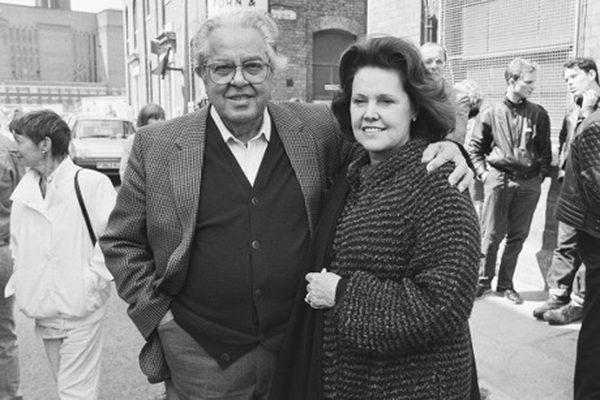
Albert R. ‘Cubby’ Broccoli was the legendary producer who shepherded the Bond franchise from the debut outing, Dr. No [1962], to the 16th entry, Licence To Kill [1989] and who, by his own admission, owed much of his success to the persistence and support of his third wife, Dana.
“Cubby was a real old-school Hollywood type but with a lot of integrity,” says David. “His family were immigrants from Calabria who came to America with very little and started a farm on Long Island. Cubby worked his way up doing any job that would give him opportunity – farmer, undertaker, talent agent – you name it. Fast-forward many years later and now he’s a film producer. Soon after he married Dana, he self-financed The Trials Of Oscar Wilde [1960] because he really believed in the project. However, it created a lot of controversy because [American political organisation] the Moral Majority boycotted the picture due to the film’s depiction of Oscar Wilde’s homosexuality.
“The critics liked the film, but society wasn't ready for it and Cubby lost his money in that project. He wondered, ‘What am I going to do now?’ He had to reinvent himself, yet again, as he had done many times over. He’d been interested in adapting the James Bond novels once before and had asked his then producing partner, Irving Allen, to meet with author Ian Fleming [James Bond’s creator] and do a deal on their behalf. Unfortunately, the meeting between Allen and Fleming went poorly which I think culminated in some unfortunate things being said and Allen burning bridges. Cubby figured the rights were forever off the table, but Dana backed him, ‘If this is what you really want to do, you should go for it’ and she was ready to cut expenses and stretch finances to help him realise his dream. Cubby learnt that the rights were held by Harry Saltzman at the time and together they formed Danjaq [a combination of Broccoli and Saltzman's wives' names, Dana and Jacqueline] and later, EON Productions, to make the films.
“Arthur Krim at United Artists agreed on a handshake to make the picture, Dr No, for a million dollars – which was a huge budget at the time. That was the respect that Cubby commanded. Saltzman was dismayed that Cubby hadn’t got a contract, but Cubby said, ‘Arthur Krim shook my hand, that's as good as signed!’ To appease his partner, he went back into the room to get a signed agreement even though he didn’t need it. He always told me, ‘Your word is your bond’ – no pun intended. He really lived his life that way. He was exceedingly generous and fiercely loyal to those who had helped him. He attracted good people and promoted them to prominent positions. He was good at building extremely effective teams. Everyone knew what Cubby stood for. They knew that he would keep his word and that he’d protect them.”
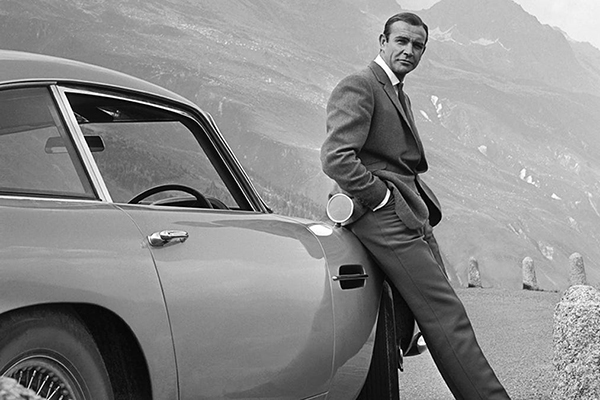
As strong as Cubby’s partnership with Saltzman was, he relied very much on the savvy of Dana (by then a talented and successful writer and producer in her own right), to help make some of the most successful decisions of his career.
“She was a highly effective and creative woman in an era and in an industry that didn’t reward that. Over the years, she had used male authors as ‘Beards’ to publish her own written work. With Cubby, things were different. He made her an equal partner in their life together. As the Bond films became increasingly successful, Dana was very good at diversifying their wealth and reinvesting their money in other business activities, such as real estate.
“She had good instincts,” says David referring to her support for Sean Connery be cast as James Bond. “Connery at that time, had only one lead role, a peculiar little Disney film set in Ireland [1959’s Darby O'Gill And The Little People]. He came into the offices for an audition and Cubby wasn’t sure, but Dana pointed out that all the women were watching out the window as this guy left. He had a lot of animal magnetism and that was the clincher!”
They had built this very successful franchise and it was all going to come crashing down.
A strong family bond
Salzman would remain Cubby’s partner up until the ninth Bond Film, 1974’s The Man With The Golden Gun, when he encountered “Legal issues wherein he’d used his Danjaq equity as collateral on some deals that went south.” Cubby enlisted the help of by-now qualified lawyer Michael G. Wilson to help right the ship.
“The family really thought this was the end; they had built this very successful film franchise and it looked like it was all going to come crashing down. So, my father joined… And never left.”

In 1995, Cubby handed over control of the enterprise to Michael and his half-sister Barbara Broccoli on the release of the Pierce Brosnan-starring GoldenEye, the first Bond movie in six years by that point and a marked sea change in the series’ evolution.
“Each Bond movie is an opportunity to rethink the franchise and make it topical, contemporary. And my father and Barbara’s attitude was to go back to the text, look at what Ian Fleming wrote and see what's relevant to what audiences want.
“There has been a lot of social change since the release of Dr. No. As we went into different eras, we had to approach it in different ways.”
Sadly, film is not the place where big ideas are discussed anymore.
Nothing lasts forever
For David, growing up with love and respect for Roger Moore’s Bond (while diplomatically having equal appreciation for all the actors that came before and after him), it was never in doubt that he’d want to get into the family business. He started out as a screenwriter and assistant producer, having earned his stripes working as an assistant director on Japanese low and medium-budget films in Tokyo, at one point for critically acclaimed director, Imamura Shohei.
With 11 feature films, including six Bond movies, from License To Kill [1989] to Casino Royale [2006], under his belt and having executive produced several triple-A videogame titles, David started to realise the storytelling potential of cutting-edge mediums.
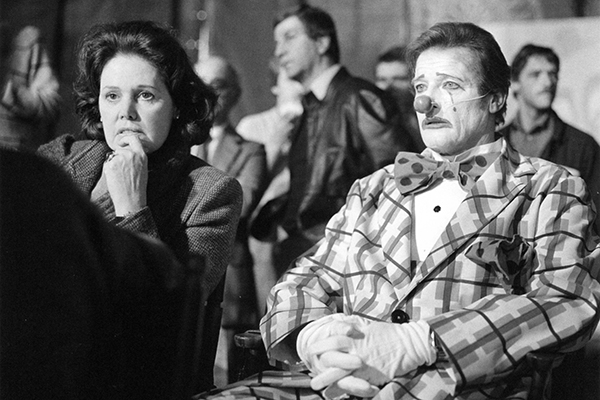
“When I was in middle school, my father gave me a hand-me-down 16mm Bolex film camera and a group of friends and I made films together,” he says. “When I was young, movies were the venue for big ideas and social issues to be wrestled with out in the public forum, and that excited me.
“I say this with some bittersweet sadness but now I think, sadly, film is not the place where those big ideas are discussed anymore.
“You see this lifecycle in many industries, where you have idealistic pioneers. And then you have an interim phase where the accountants move in, and it becomes very financialised. And then the twilight when the lawyers come in and they carve up what's left. I think the film business, unfortunately, is going through this trajectory. The really big ideas are now discussed on streaming and in video games.
“Nothing lasts forever, and the film industry has had a really good run. It has influenced a lot of things in society, but I think it has ceded that position to those new entrants.”
I often see things way before other people do and I get very excited about them.
The evolution of entertainment
Having encountered some resistance to diversification beyond the core family business, David decided to demonstrate the efficacy of his prophetic investment nous by striking out on his own initiatives.
Throughout his career and given his passionate interest in technological advances and opportunities for storytelling, David has often been ahead of the curve when it comes to the next big investment opportunity. Take for example, his prescient vision of the rise of streaming.
“I often connect the dots way before other people do and I get very excited,” he says. “I wanted to move the family towards streaming 20 years ago. I knew it was going to be big. I was the first person I knew to cut-the-cable back in 2005 and only consume entertainment on-demand,” he says. “When Netflix pivoted from DVDs in the mail to streaming content, it was clear that nothing would ever be the same again.
“I could see very early on that Netflix had a business model that was going to blow the traditional studios out of the water, there was just no way they could compete.
“Hollywood doesn’t invest enough in research and development. If you look at their spend on project development – whether it’s for original or optioned content – they spend a fraction of 1% of revenue on R&D. By contrast, Netflix spends roughly 8%. That’s still a far cry from the pharmaceutical industry, another hits-driven business, which spends 25% of revenue but it’s eight times the industry standard.
“Not only does Netflix outspend Hollywood for R&D but they understood early on what the public wanted. While Hollywood was busy treating their audience like criminals, basically taking anyone to court who wanted to watch something via BitTorrent, Netflix was treating them like valued customers by giving them legitimate ways to consume content at reasonable prices. They understood and delivered on the mantra – anything, anytime, anywhere. I spoke out against the industry’s ‘War on piracy’ obsession publicly at the transmedia conference, Power To The Pixel, over a decade ago. Hollywood was once a pioneer but then it got in the way of innovation, and so it suffers the consequences.
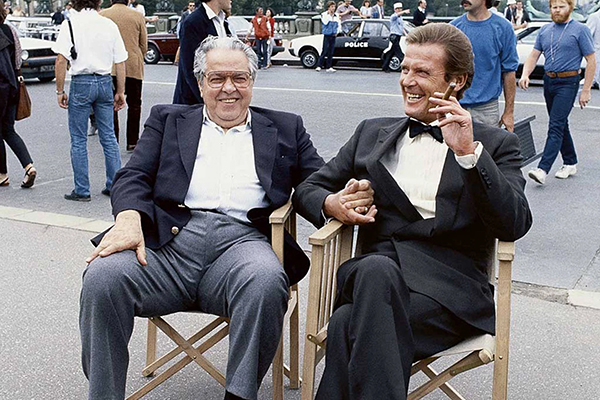
“Netflix has subscribers. So long as they continue to delight, the customer remains faithfully locked in, whereas Hollywood must create an audience each time it releases a picture. It’s the difference between a content-driven business and a marketing-driven business, and the former has far better scalability. So, I think it was clear early on what was going to happen, although there are a few more players now than I expected - it's impressive to see that HBO, Hulu and others have taken such strong positions.”
This foresight did eventually reap huge dividends when MGM, part owner of the Bond franchise, was sold to Amazon in 2022 in a record-breaking $8.5 billion acquisition. As a result, 007 found a new streaming home in Amazon Prime and David’s sagacity was validated.
“I think the Amazon deal took them somewhat by surprise, but I knew it was coming," he says. "I actually pitched the family a concept for a start-up that would use crowdsourcing to co-create new entertainment franchises which might eventually be sold to Amazon Studios. That was back in 2012.
“Even though Amazon didn’t yet have the audience reach of Netflix, I considered them to be far more experimental, far more risk-taking when it came to leveraging their user community to make creative decisions. Whether it was giving viewers green-light authority over pilots for serials, asking them to read scripts or approve storyboards, they were basically searching for ways to involve audiences in some form of collaboration activity from which they can leverage their film, TV, novel and comic-book libraries.”
I don’t think storytelling necessarily makes a good game, but it can make a good game great.
Keeping the shared experience alive
Having left Eon Productions in 2017 (his last roles were as head of creative & business affairs for Eon Screenwriters Workshop and vice-president of global business strategy), David has since found great success as a venture capital angel investor, startup mentor and chief executive officer of mass collaboration platform Shared Experience Art Machine Ltd.
“I think my family understood my prognostications about community content and streaming or else they simply got tired of hearing about it,” David laughs, “Because they gave me seed financing to start a business and strike out on my own yet remain engaged in the outcome. For that I am truly grateful.
“I called it Shared Experience Art Machine which comes from ancient Greek for ‘Education technology’ and it was the first intellectual property cooperative for the entertainment industry. I called it that because I think many people want to collaborate in order to become part of something bigger than themselves – in order to explore, learn and evolve. In some ways, it’s not unlike the sense of magic we feel going into a darkened cinema for the first time and bonding together,” says David.
“My main concern is when I talk to younger people, I see a significant drop in movie cinema attendance because they have other things that excite them.”
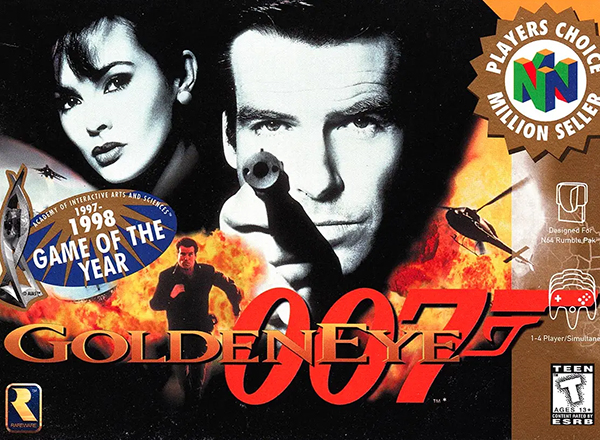
Looking for futureproof entertainment platforms is now what takes up much of David’s time. Whether it’s scoping out incoming trends or looking to the narrative-led possibilities of the metaverse and Web3, David is the very definition of a futurist.
“I was always obsessed with tech. When I was at grade school, I taught myself assembly language because [early home computer] Apple II put out the MOS 6502 microprocessor and they had guidelines on how to programme it. I was very into computer software development, and I thought it was really exciting what was happening.
“When I worked for the family, I was also trying to bring in software to help us with scheduling and budgeting to streamline our production process, so I was very keen to combine entertainment and technology.
“I got a chance to do a lot of video game development and that really changed my thinking about the storytelling possibilities of new technology.
“GoldenEye [the video game] projected selling maybe 50,000-100,000 copies. They eventually sold eight million - it was the biggest videogame success of all time. Now I'm involved with more video game investments as a VC and it's very different because I'm not dealing with Bond anymore. I don't see young people being that passionate about long-form narratives in the traditional vehicles, so my curiosity is taking me to where the next arena is going to be for that. Video games, in particular, are constantly pushing the boundaries of storytelling as well as new business models. They embrace content contributed by their audience.
“Most of the video game projects I’ve worked on have a coherent story world and focus on the emotional aspects. I don’t think that storytelling necessarily makes for a good game, but it can make a good game great.
“One of the companies I invested in recently, Apocalypse Studios, is exploring many new ways to create long-form storytelling content from player behaviour. As cutting-edge as their technology is, they have a mindset of returning back to the Greek forum in which audience participation was critical to the experience.”
History teaches us that the most reliable thing is change.
Collaboration is key
David’s interest in the collaborative potential of technology inevitably leads into the dawn of Web3 and the metaverse.
“When you look at what people are building, it is phenomenally disruptive and very exciting,” he says. “It began with open-source software development… Linux and Wikipedia have unlocked so much more innovation as well as new social behaviours. That's what Web3 is all about – basically bringing an open-source development ethos to everything while disintermediating the distinction between creator, consumer and shareholder. They become all one in the same.”
“I’ve always been interested in how technology can change society,” he says. “In the next ten years, I would expect major changes across Web3, the metaverse and cryptocurrency. The most exciting thing to me is how you can incentivise large groups of people globally to innovate together, what I refer to as the collaborative economy. Consumers now want agency. Not in all things but in the things they care about. In particular, I think mass collaboration will change the rules of the game.
“I think [open-source deregulation] will make us question a lot of organisational structures and protections that we have in place. For example, what use will patents be when there is a global army of temporary talent working for decentralised autonomous organisations which have no time for legal obstacles to innovation? Ultimately, I see a need for regulation, but I think the early attempts will be heavy handed and will probably have the opposite effect of what they intend. I think going forward if we really are to save ourselves from our own destruction and solve mankind’s most intractable problems, then we must stop working in fiefdoms – it will be important to be able to organise global movements. This necessitates mass collaboration and radical transparency.”
David firmly believes that we’re at a unique intersection of generations and the potential for positive transformation across social, political and economic landscapes is very much on the horizon.
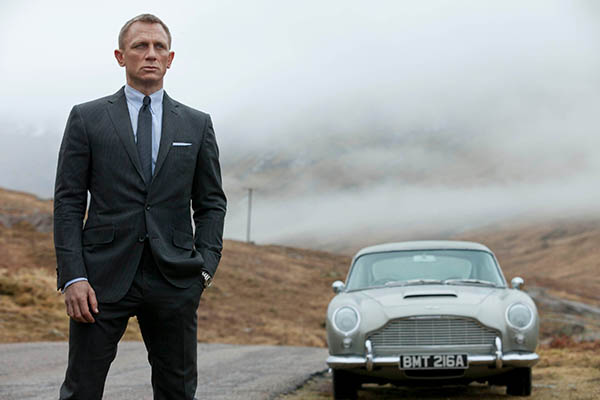
“History teaches us that the most reliable thing is change and I think if you take things for granted, that's probably the beginning of the end,” he says. “Companies that have been around more than 100 years will have altered their line of business many times over because they must adapt and pivot.
“As for myself, one of the things that differentiates me from many people I know is that I don't mind change. In fact, I’m excited by it. Coming from a film family, I was moved to almost 12 different schools by the time I went to college, so I'm used to working with different people in different cultures on many different things. I’ve held many different careers in my own life. I feel the need to be in constant motion. Doing nothing is guaranteed failure.
“I think demographics shape you because it affects your own experience. Gen Xers which are in my age group were robbed of a lot of opportunities, by no fault of their own. When I graduated from university, the US promptly went into a recession. So, I went off to Japan when it was booming to seek my fortune and then it crashed, as well. Then I built up some wealth in early 2000s but then came the tech bubble and – boom! I lost out again.
“Gen Xers are particularly cynical about how the world works, for good reason, but I think that millennials and Gen Zs are different because what they're experiencing is unique. Gen Z is probably going to affect the most change - they've seen global war all their lives, have never known a life unconnected to the internet and are always on social media, they’ve been highly resourced yet they don't see any sort of economic opportunities for themselves in which to make a meaningful impact. This makes them riddled with anxieties about the future. As a result, I think they are going to be much bigger risk takers because their perception of the world is different. They also understand collective organisation better and really want to work together to do things that are meaningful, powerful and impactful.
“I think that each generation is shaped by circumstances and has a different outlook. That's the beauty of it, that's what keeps everything in motion and, hopefully, the species from dying out because everybody has a cognitive diversity.”
While David is grateful for the uniquely strong foundations his family has with the Bond franchise, he’s very much driven to break the third-generation curse.
Forty-five percent of North American next gens are expected to assume control within the next ten years, 17 per cent within five years and 28 per cent within six to ten years [4]. This suggests we’re on the precipice of a seismic shift, worth trillions of dollars, between generations – but the question remains about the readiness of those successors to keep the lights on.
In the third gen, you must go back to full entrepreneurial mode and behave like a startup.
With his forward-thinking investments guaranteeing diversification and growth, David, however, is bucking the trend by ensuring the next generation and beyond has multiple bases on which to expand.
“We’ve had a fantastic run of things and I hope that we will continue to go from strength to strength going forward, but I don’t want to downplay the challenges that we have,” he says. “Having the Bond franchise has been a wonderful luxury and has given our family tremendous security at times. This allows us to take risks, and we have taken many over the years! In fact, it is incumbent upon us to do so. The reason why the third generation often stumbles is because it doesn’t take sufficient risk to begin with. It is afraid of losing everything.
“This is ironic given the origin of the business to begin with. Remember, the first generation had nothing to lose and everything to gain because they had nothing to start with. They had no choice but to gamble. Every failure was an opportunity to learn and course correct. The second generation built for stability which was of a higher order priority. Now, the third generation has nothing to lose because they have a position of privilege from which to fail repeatedly until they get it right. None of those failures mean it’s game over because they have a safety net built by the second gen. And the organisation needs the third gen to figure out the game plan for the next two generations. This is precisely why risk taking is so imperative to the third.
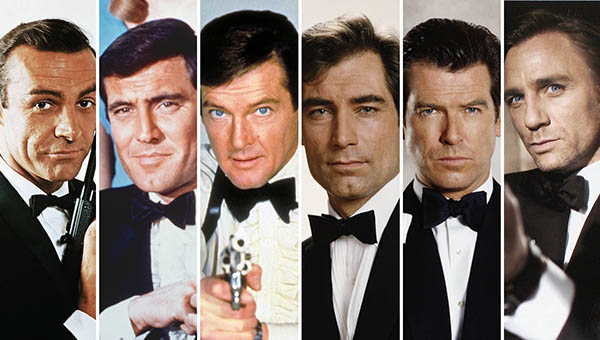
“My attitude was, ‘Look, if we can't roll the dice on our primary income, then let me strike out on my own and try to do some entrepreneurial ventures because there needs to be a way for the new generations to find opportunities and to take those risks.
“In the third gen, you must go back to full entrepreneurial mode and behave like a startup, just like the first generation did. The only difference being that you can use the family office as a kind of a banking infrastructure to provide legal and financial assistance – offering various kinds of securities that you generally can't find as a startup because the marketplace doesn’t share the same long-term, legacy objectives of your family.”
“After starting SEAM, I founded a venture capital firm, Tyr Ventures, with a colleague of mine from the games industry. Together, we made five investments in our first year that focused on the collaborative economy with an emphasis on next-generation entertainment and media. I’m proud of the fact that we are the first outside money in each one of those investments because we see the potential before anyone else. Our first investment is already on track to becoming a billion-dollar company.
Looking to the future, the secret of David’s success is continuous thinking, innovation and decisive action.
“I think I’m somebody that gets into very mental modes. I like to think and work through stuff a lot and that means sometimes sacrificing action. In the past, I have done more thinking and less doing and that was harder to attract people to my cause. I’ve found that to just keep experimenting and finding people along the way will be much more effective in building an army than being in your ivory tower.”
[1, 2] The North America Family Office Report – Campden Wealth 2021
[3] The Next Generation of Global Enterprising Families: Shaping Tomorrow, Today - Campden Wealth, 2020
[4] The North America Family Office Report – Campden Wealth 2021


